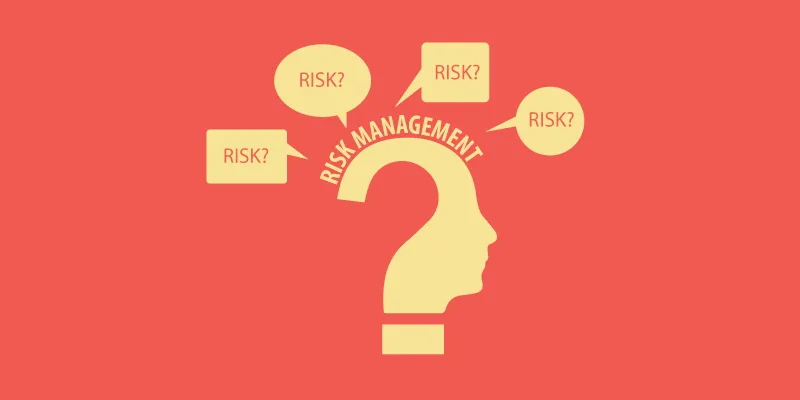Need for risk managers in startups
You pick up the newspaper each day and either you see the launch of another startup or you will come across an advertisement of yet another e-commerce platform. This has generated tremendous interest in the private equity space, with each company vying to invest funds at valuations that a few years back would have been deemed absurd. Additionally, the hunting grounds of these startups are the business schools and many of our young business school graduates are betting their nascent careers on the success of these startups. In this context, given the money and young careers invested, the need for risk managers in startups has to be critically examined.

How effective risk management in the supply chain saved a food startup
The need for risk managers can be demonstrated from a recent experience that a consumer (let us call him Jai) had with a food startup, and the role played by the founder as its risk manager. One evening, Jai was taken by surprise when a friend announced that he was showing up for dinner with some of his overseas guests. In addition to what his cook could rustle up at the last moment he decided to order mutton biryani from a new startup in town (whose chicken biryani Jai had already sampled and loved). From some of the write-ups of this home delivery service, he had come to know that this startup had been launched by a business school graduate who had left the marketing department of a leading multinational to give his entrepreneurial spirit an outlet.
The biryani was traditionally packed in an earthen pot and his foreign guests looked expectantly at sampling this exotic Indian dish. The food was served and unfortunately his guests were extremely disappointed with the biryani, leaving most of the meat partially eaten. The flavours were great, the softness of the rice and spread was fantastic, but many of the mutton pieces were hard to chew. The next morning Jai called the ordering number and registered his complaint. Within ten minutes of his call being disconnected, he got a call from the founder who was extremely sorry about what had happened and promised to investigate and make up for his unfortunate experience.
A few days later Jai received another portion of the mutton biryani and it was just great, consistent in its flavours and spread and its meat. Since the supplier had not sent a bill, Jai called to protest and this is what he was told. "Sir", the owner said, "you have done me a great favour by registering your complaint. Based on what happened, I tracked my supply chain from the procurement of the meat, and we found that my procurement team had not set up clear standards on the type, age and size of the lamb. Having standardised this, my customers are now going overboard in ordering this dish, given the remarkable change in the quality of the mutton biryani". So it did not come as a surprise to Jai that this startup had done very well when it completed its first year of operations.
Risk mitigation by the food startup
A quick analysis of how the food startup identified and analysed the risk, and eventually mitigated it effectively.
- A robust feedback system - the complaint rang alarm bells in the company right up to the top, and the problem was pro-actively analysed.
- Data analytics – the owner quickly analysed the complaint logs and realised that a particular product had a high Number of dissatisfied customers. This helped him approach the problem in a focussed manner
- Business process understanding – the owner quickly analysed the supply-chain process and identified the missing quality controls in the procurement process
- Setting up quality controls - defined quality systems and standards were established and implemented to monitor future procurement.
This demonstrates that risk cuts across business processes, and greatly affects business value. This risk mitigation helped the food startup maintain the quality of its product going forward, and ensured that its sale register went ringing again.
Now if we increase the size of a startup business a thousand-fold we will realise that the complexities at each level of today's modern businesses increase proportionately. Risk is omnipresent and needs to be assessed and managed at every level of the organisation's business process, whether in the supply chain as in the example above, or in manufacturing, financial management, talent acquisition, or even with the reputation of the organisation in ethical dealing, fairness and customer value.
A startup may believe that so long as it has taken care of crucial issues—with e-commerce, agreements with key suppliers in place, a trustworthy website with smooth payment gateways, efficient taxi service integration, with licensed drivers, legally-owned cars, and other key checks—it is well on the way to successful running, since they have taken care of some of the key elements in these businesses. However, we have seen that many other risks that could have been anticipated surface, and if these are not first assessed and then managed by a proper mitigation strategy, the survival of the business is at stake. This is where a risk manager will design the complete risk management framework, considering all possible risks, their mitigating process and a robust feedback to the top management periodically so that it is effectively monitored.
In this age of globalisation, even established businesses have to respond rapidly to market volatility, economic crises brought about by any number of existing factors and new ones like global terrorism, fatal viruses like the Zika, cyber threats, and the likes. In a startup, where initial margins can be thin and unstable, the cushion for error is very low, the requirement for risk managers to navigate through these treacherous waters is not just desirable, but absolutely essential.
(Disclaimer: The views and opinions expressed in this article are those of the author and do not necessarily reflect the views of YourStory.)







